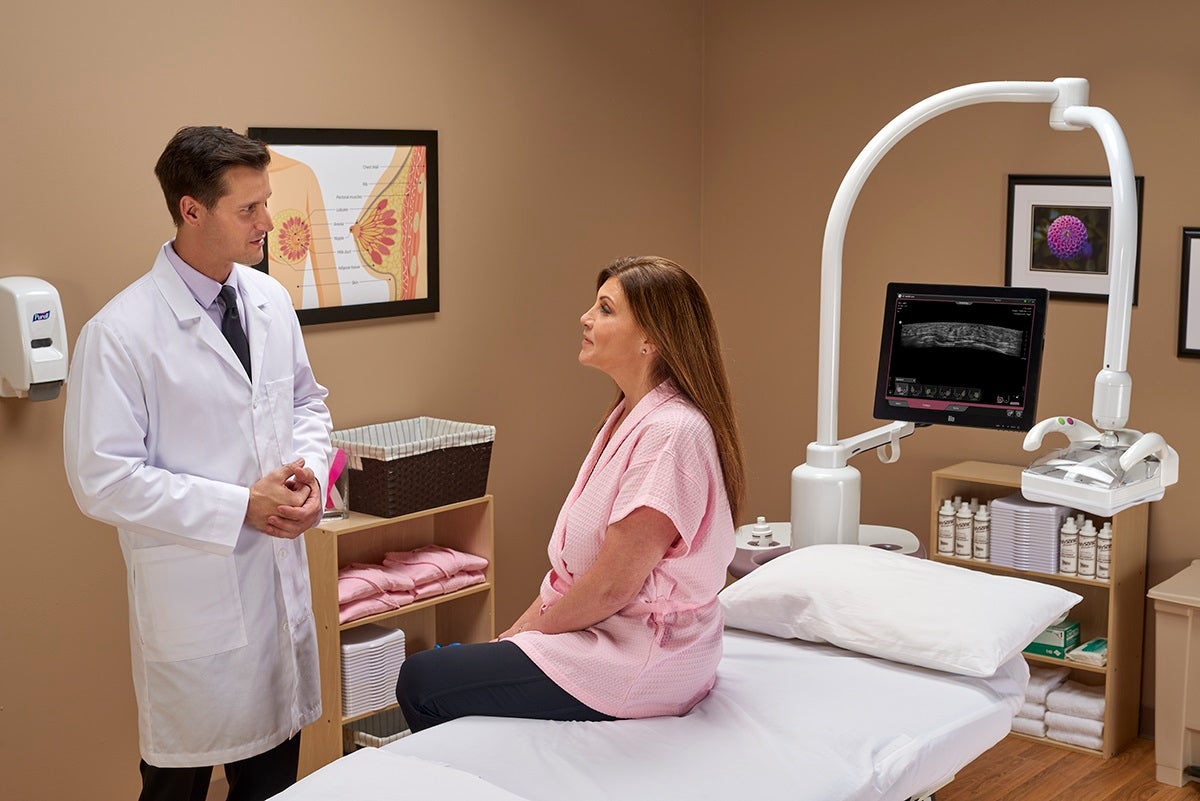Defining Breast Density and Dense Breast Tissue Ultrasound
June 19, 2024
By: Saint Alphonsus Women's Health Team
Categories: Medical Innovations, Womens Health
A breast with more tissue than fat is considered dense.
All breasts are not the same!
About 40% of women have dense breast tissue. The FDA recommends women with dense breast have supplemental screenings to help detect small cancers that standard mammography does not see. Having dense breast is normal – it means your breast contain more tissue than fat. However, having dense breast tissue may also increase the risk of developing breast cancer.
*If your mammogram shows you have dense breasts, you may want to consider Automated Breast Ultrasound or an Abbreviated Breast MRI in addition to your annual mammogram.
What does breast density mean?
Breasts are made of fat and breast tissue. A breast with more tissue than fat is considered dense. Breast density is determined by the radiologist who reads your mammogram. Ask your doctor your density; every woman should know her breast density.
Saint Alphonsus is proud to offer 2 supplemental breast screenings available through our Partners in Health – Intermountain Medical Imaging located at the Magic View Meridian - 2929 E Magic View Dr. Meridian, ID 83642 or call (208) 954-8150.
If you are in need of additional breast imaging listed, click here or call (208) 954-8150
Abbreviated Breast MRI – New technology only offered at one location in the region!
“AB-MRI” also called abbreviated MRI is a shortened version of a breast MRI. 'It is designed to screen for additional breast cancers not seen on mammography in women with dense breast tissue. It detects biologically aggressive invasive cancers at early stages. It is shorter than a full breast MRI. Patients are scanned for approximately 6 minutes during a 30-minute appointment.
Automated Breast Ultrasound (ABUS)
Automated Breast Ultrasound (ABUS) is an ultrasound examination of the breast that detects small cancers that standard mammography does not see. Studies show that an ABUS examination in conjunction with a mammogram can find more cancers in women with dense breast than mammography alone. This is a painless examination that takes less than 30 minutes to complete and has no radiation or compression. On a mammogram, dense tissue, and masses both appear white, so a suspicious lump may be hidden in the dense tissue. When dense tissue is scanned with ultrasound, tissue appears white, and masses appear dark – making them easier to see.
Please check with your insurance provider or call (208) 954-8150 prior to your appointment to see if this exam is covered under your plan.
